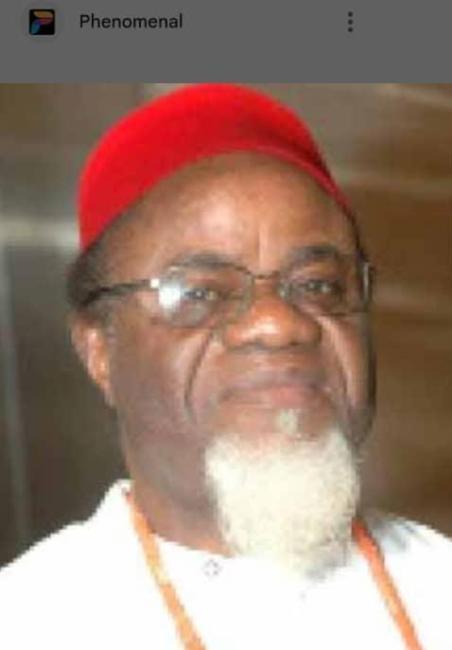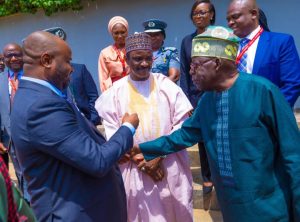‘Kyari further explained that the funding of petrol subsidy by NNPCL had been ongoing without refunds from the Federal Ministry of Finance, Budget and National Planning, despite being budgeted for in the appropriation act’
By Valentine Amanze
(5-06-2023)
At last, the All Progressives Congress-led federal government on Monday May 29, 2023, carried out its threat to stop subsidizing imported patrol otherwise known as Premium Motor Spirit (PMS).
Before it put the cart before the horse, it had hinted in November 2021 that the subsidy was taking toll on the revenue of the government, with its fraud-infested system.
It also promised to cushion the effect with a monthly N5,000 transport grant for poor Nigerians.
Other reasons for subsidy removal
On February, the Nigerian National Petroleum Company Limited (NNPCL) announced that the country was spending over N400 billion monthly on petroleum subsidy.
The NNPC Group Chief Executive Officer, Mele Kyari, disclosed this at the final cutover ceremony of NNPC and the birth of NNPCL at the corporation’s towers in Abuja.
Kyari explained that NNPCL was the sole importer of petrol into Nigeria and has continued to play the role for several years running, bearing the huge cost of fuel subsidy.
He further disclosed that other private oil marketers stopped importing petrol into Nigeria due to the difficulty encountered in accessing the United States dollars, required for the import of PMS.
“Today, by law and the provisions of the Appropriation Act, there is a subsidy on the supply of petroleum products, particularly PMS, into our country. In current data terms, three days ago the landing cost was around N315/litre.
Also read: Removal of fuel subsidy must not exacerbate poverty – Amnesty International
“Our customers are here, we are transferring to each of them at N113 per litre. That means there is a difference of close to N202 for every litre of PMS we import into this country.
“In computation, N202 multiplied by 66.5 million litres, multiplied by 30 will give you over N400 billion of subsidy every month,” he said.
Kyari further explained that the funding of petrol subsidy by NNPCL had been ongoing without refunds from the Federal Ministry of Finance, Budget and National Planning, despite being budgeted for in the appropriation act.
Issues
There are secrets not yet revealed on the subject matter.
Kyari did not disclose why the Finance, Budget and National Planning Ministry refused to disburse the fund to NNPCL and who was making it difficult for the private oil marketers to access the United States dollars required for the importation of pms.
The government also alleged that there was a massive fraud in the system, which makes one to wonder, who were the fraudsters?
If the government wants to be sincere and justify the subsidy removal, Nigerians want to know the licensed importers and how much they have received from the federal government.
The way forward
The government must not solely depend on the yet to be completed Dangote Refinary for its pms needs.
More private individuals must be encouraged to own refinaries in Nigeria for a healthy competition because the monopoly Dangote enjoys in cement industry has not reduced the price of cement.
The Ministry of Petroleum must be probed on why it has refused to fix Nigeria’s four refinaries despite yearly budgetary allocation.
It is appaling that the giant of Africa and a major producer and exporter of crude oil cannot afford one ordinary modular refinery.
While the government is yet to agree with the Labour on palliatives, it should bear in mind that they constitue less than one per cent of the country’s 200 million people.
If the salaries of the government workers are increased, what happens to others in the private sector, who also buy from the same market?
By now, the government would have had a proper arrangement on provision of infrastructure such as good road network and public transport system that would include adequate rail and water transport.
If effective mass transist system is provided, car owners will abandon their cars at home.
Nigeria should be thinking about solar-operated vehicles and use of bicycles for their routine activities.
Nigeria must be careful on the application of World Bank and International Monetory Fund’s (IMF) policy recommendations. They belong to the private sector, which objective is always to make profit. The government must apply local solution to the nation’s economic crisis; and not the N5,000 monthly palliative.
By now the government should be thinking of reducing cost of governance.
The jumbo-sized total take home of the lawmakers and government officials must reduce if the government is serous about the subsidy removal.
The history of fuel subsidy dates back to October 2000 due to supply inadequacies from the country’s four refineries. The Nigerian government set up a committee to review all aspects of petroleum product pricing and distribution. The committee recommended establishing a Petroleum Products Pricing Regulatory Committee (PPPCRC), which later metamorphosed into Petroleum Products Pricing Regulatory Agency (PPPRA). PPPRA uses a price modulation mechanism, which allows for adjusting petroleum product prices to reflect changes in global oil prices.
Under PPPRA, the Nigerian National Petroleum Corporation (now NNPC Ltd) and approved importers bring in petroleum products.
These products are sold to independent petroleum marketers at government- regulated prices, usually lower than the landing cost.












